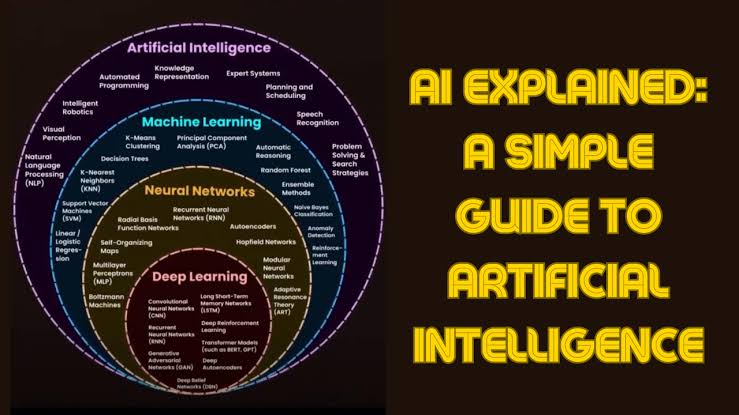Artificial Intelligence, often referred to as AI, is one of the most transformative technologies of the modern era. It refers to the ability of machines and computer systems to simulate human intelligence processes, including learning, reasoning, problem-solving, and decision-making. AI is becoming a part of everyday life, influencing industries, personal devices, and even social interactions. Understanding its basic concepts can help you navigate a world increasingly shaped by intelligent systems.
What Is Artificial Intelligence?
Artificial Intelligence is the branch of computer science that focuses on creating machines capable of performing tasks that typically require human intelligence. These tasks may involve interpreting natural language, recognizing images, making predictions, and adapting to new information.
Key areas of AI include:
- Machine Learning (ML) – teaching computers to learn from data without being explicitly programmed
- Natural Language Processing (NLP) – enabling machines to understand and interact using human language
- Computer Vision – allowing systems to process and interpret visual data
- Robotics – combining AI with mechanical systems to perform physical tasks
AI ranges from narrow applications, such as chatbots or recommendation systems, to more general systems capable of complex reasoning.
How Artificial Intelligence Works
AI systems work by processing large amounts of data, identifying patterns, and using these insights to make predictions or decisions.
The process typically involves:
- Data collection from various sources such as sensors, images, or text
- Data processing to clean and organize information for analysis
- Algorithms that train the system to recognize patterns and respond accordingly
- Feedback loops to refine and improve performance over time
Machine learning algorithms, especially deep learning models, use neural networks inspired by the human brain to handle complex tasks like speech recognition or autonomous driving.
Types of Artificial Intelligence
AI can be categorized into three main types:
- Artificial Narrow Intelligence (ANI) – AI designed for specific tasks, such as virtual assistants, translation tools, or spam filters
- Artificial General Intelligence (AGI) – a theoretical form of AI that can understand, learn, and apply knowledge in multiple domains like a human
- Artificial Superintelligence (ASI) – a hypothetical future AI that surpasses human intelligence in all areas
Currently, most of the AI we use today falls into the ANI category.
Applications of Artificial Intelligence
AI is already integrated into many aspects of daily life and business operations.
Common uses include:
- Virtual assistants like Siri, Alexa, and Google Assistant
- Recommendation systems for shopping, music, and video platforms
- Fraud detection in banking and finance
- Autonomous vehicles and smart traffic management
- Predictive analytics in healthcare for diagnosis and treatment planning
Industries from education to agriculture are adopting AI to improve efficiency, accuracy, and productivity.
Benefits of Artificial Intelligence
AI offers numerous advantages when implemented correctly.
- Increased efficiency by automating repetitive tasks
- Improved accuracy in complex calculations or analysis
- Enhanced decision-making through predictive analytics
- Personalized experiences for consumers based on preferences
- Cost savings over time through optimized processes
These benefits make AI a valuable tool for both businesses and individuals.
Challenges and Concerns in AI Development
Despite its benefits, AI also presents challenges and ethical considerations.
- Job displacement due to automation of certain roles
- Data privacy concerns with large-scale data collection
- Algorithmic bias that can result in unfair decisions
- Security risks from AI-powered cyberattacks
- Ethical dilemmas in areas like autonomous weapons or surveillance
Addressing these challenges requires careful regulation, transparency, and responsible AI development.
The Future of Artificial Intelligence
AI is expected to grow rapidly in capability and application. Future advancements may include more human-like conversation systems, smarter robotics, and AI that can explain its reasoning more transparently.
Trends to watch include:
- Increased adoption of AI in healthcare for precision medicine
- AI-driven sustainability efforts to combat climate change
- Growth of AI-powered education tools for personalized learning
- Expansion of AI ethics frameworks to ensure fairness and accountability
As AI becomes more embedded in society, understanding its fundamentals will be essential for navigating a technology-driven world.




Good